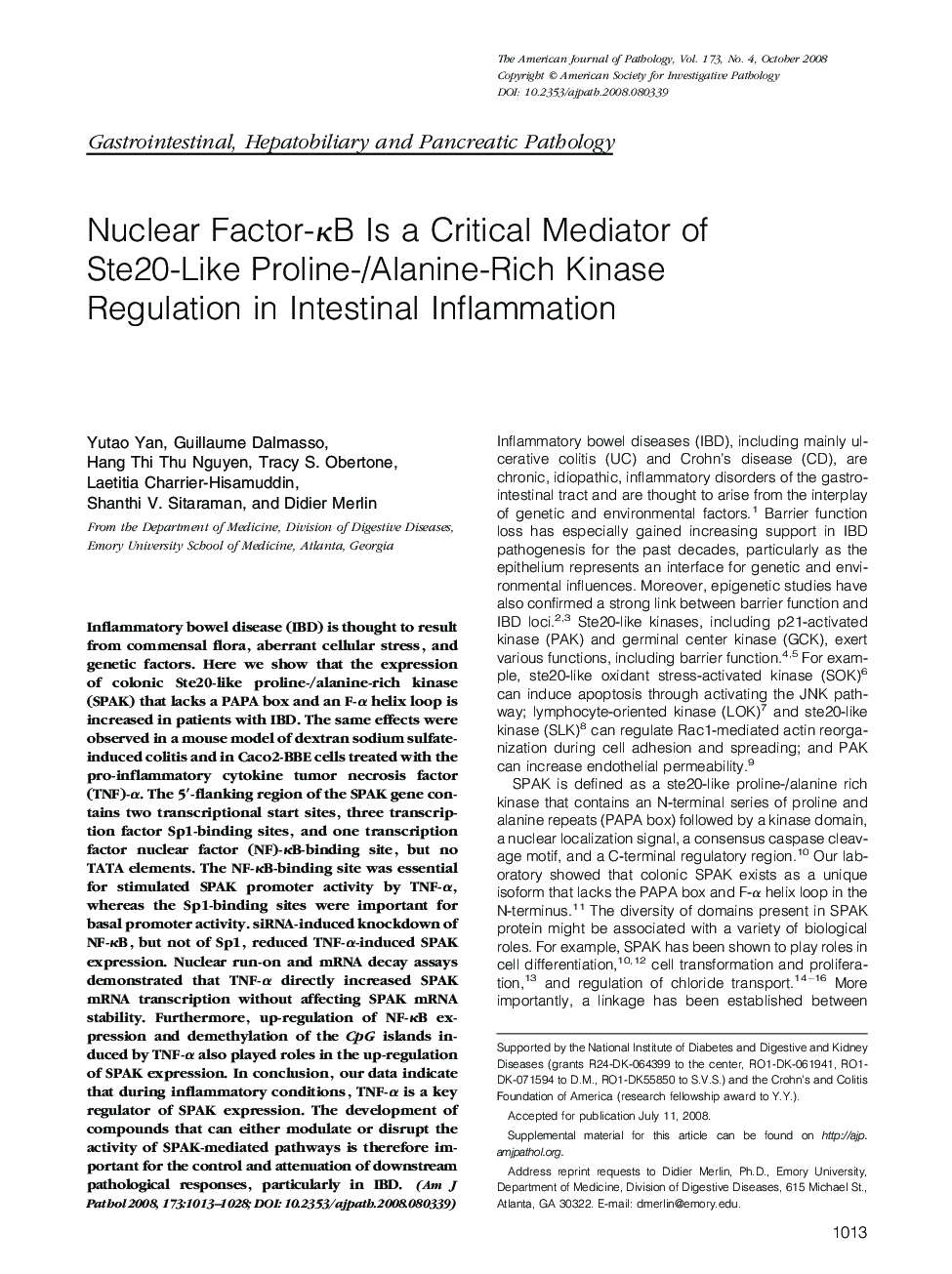| Article ID | Journal | Published Year | Pages | File Type |
|---|---|---|---|---|
| 5937984 | The American Journal of Pathology | 2008 | 16 Pages |
Inflammatory bowel disease (IBD) is thought to result from commensal flora, aberrant cellular stress, and genetic factors. Here we show that the expression of colonic Ste20-like proline-/alanine-rich kinase (SPAK) that lacks a PAPA box and an F-α helix loop is increased in patients with IBD. The same effects were observed in a mouse model of dextran sodium sulfate-induced colitis and in Caco2-BBE cells treated with the pro-inflammatory cytokine tumor necrosis factor (TNF)-α. The 5â²-flanking region of the SPAK gene contains two transcriptional start sites, three transcription factor Sp1-binding sites, and one transcription factor nuclear factor (NF)-κB-binding site, but no TATA elements. The NF-κB-binding site was essential for stimulated SPAK promoter activity by TNF-α, whereas the Sp1-binding sites were important for basal promoter activity. siRNA-induced knockdown of NF-κB, but not of Sp1, reduced TNF-α-induced SPAK expression. Nuclear run-on and mRNA decay assays demonstrated that TNF-α directly increased SPAK mRNA transcription without affecting SPAK mRNA stability. Furthermore, up-regulation of NF-κB expression and demethylation of the CpG islands induced by TNF-α also played roles in the up-regulation of SPAK expression. In conclusion, our data indicate that during inflammatory conditions, TNF-α is a key regulator of SPAK expression. The development of compounds that can either modulate or disrupt the activity of SPAK-mediated pathways is therefore important for the control and attenuation of downstream pathological responses, particularly in IBD.
